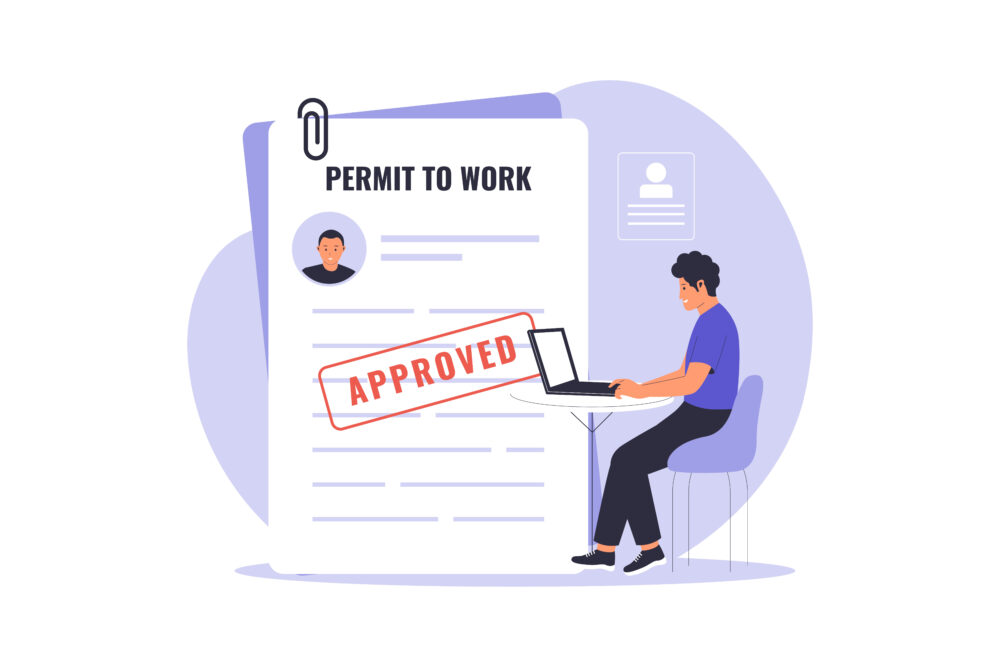During the course of providing legal consultancy services, Apolat Legal received an inquiry from a client regarding certain legal issues related to administrative violations in the employment of foreign workers in Vietnam. Specifically, the company failed to comply with regulations governing the employment of one foreign employee working at the Company. Consequently, the competent authority issued two administrative penalty decisions in relation to the act of employing a foreign worker without a work permit in Vietnam, as follows:
- One administrative penalty decision against the Company, imposing a fine of VND 75,000,000 in 2019;
- One penalty decision against the foreign worker with a fine of VND 20,000,000 issued in 2019.
The deadline for payment was set at 10 days from the date of receipt of the decision. However, as of the present time, neither the Company nor the foreign worker has complied with the penalty decisions. Therefore, it is necessary to analyze the legal consequences of such non-compliance. To assist Readers in better understanding the relevant legal issues, Apolat Legal provides the following analysis:
Voluntary compliance and statute of limitations for execution of administrative penalty decisions
1.1 Regarding the period for voluntary compliance:
Pursuant to Article 73 of the Law on Handling of Administrative Violations, individuals and organizations are required to comply with the administrative penalty decision within 10 days from the date of receipt, except where the decision specifies a longer period for compliance.
Administrative sanction decisions are delivered directly or sent via registered post, with notification to the sanctioned individual or organization (Article 70 of the Law on Handling of Administrative Violations).
In the case at hand, the period for voluntary compliance with the administrative penalty decisions imposed on the Company and the foreign worker was 10 days from the date of receipt of the decisions. As of now, this period has expired.
1.2 Regarding the statute of limitations for execution:
According to Article 74 of the Law on Handling of Administrative Violations:
- The statute of limitations for execution of an administrative penalty decision is one (01) year from the date of issuance, upon the expiry of this period, the individual or organization is no longer required to execute the decision.
- However, if the penalized individual or organization deliberately evades or delays compliance, the statute of limitations is recalculated from the date the evasion or delay ceases.
According to the guidance of the Supreme People’s Procuracy under Official Dispatch No. 5887/VKSTC-V14 2019 and Official Dispatch No. 4962/VKSTC-V14, the deliberate evasion or delay of execution is understood as:
- The individual or organization has been subjected to coercive measures (including the issuance of a coercion decision and the organization of coercive execution) but still fails to comply;
- Simultaneously, engaging in acts intended to obstruct execution, such as dissipating assets or creating difficulties for enforcement.
1.3 Legal consequences and sanctions arising from non-compliance:
In this case, it is essential to determine whether the administrative penalty decisions are still within the statute of limitations for execution by clarifying:
- Whether the Company and the foreign worker have engaged in asset dissipation or any acts hindering execution;
- Whether a coercive enforcement decision has been issued;
- Whether the competent authority has taken actions such as monitoring, urging, or coercively enforcing the decision.
Scenario 1: If (i) the Company and the Foreign Worker have not committed any acts of “deliberate evasion or delay” (as described above), and/or (ii) the Authorities have not monitored, urged, inspected, or enforced coercive measures, then the Penalty Decisions have expired in terms of enforceability. Consequently, the Company and the foreign worker would no longer be obligated to fulfill the payment obligations stipulated in the decisions.
Scenario 2: If (i) the Company and the Foreign Worker have committed acts of “deliberate evasion or delay”, and (ii) the Authorities have monitored, urged, or enforced coercive measures, then the penalty decisions remain enforceable. In this case, the Company and the foreign worker may be subjected to:
1.4 Coercive enforcement of the penalty decisions, including measures stipulated (under Article 86 of the Law on Handling of Administrative Violations):
- Deduction of part of the salary or money from the violator’s bank account;
- Seizure of assets equivalent to the unpaid fine for auction sale;
- Seizure of money or assets held by a third party in the event of asset dissipation;
- Compulsory implementation of remedial measures.
Payment of late penalty interest at the rate of 0.05% per day on the outstanding fine amount (calculated until full payment is made) (Article 78, Clause 1 of the Law on Handling of Administrative Violations).
See more:
1/ Statute of limitations and legal consequences regarding the unlawful employment of foreign workers
3/ What internal procedures can employers apply when employees commit legal violations?
Disclaimers:
This article is for general information purposes only and is not intended to provide any legal advice for any particular case. The legal provisions referenced in the content are in effect at the time of publication but may have expired at the time you read the content. We therefore advise that you always consult a professional consultant before applying any content.
For issues related to the content or intellectual property rights of the article, please email cs@apolatlegal.vn.
Apolat Legal is a law firm in Vietnam with experience and capacity to provide consulting services related to Employment and contact our team of lawyers in Vietnam via email info@apolatlegal.com.





































